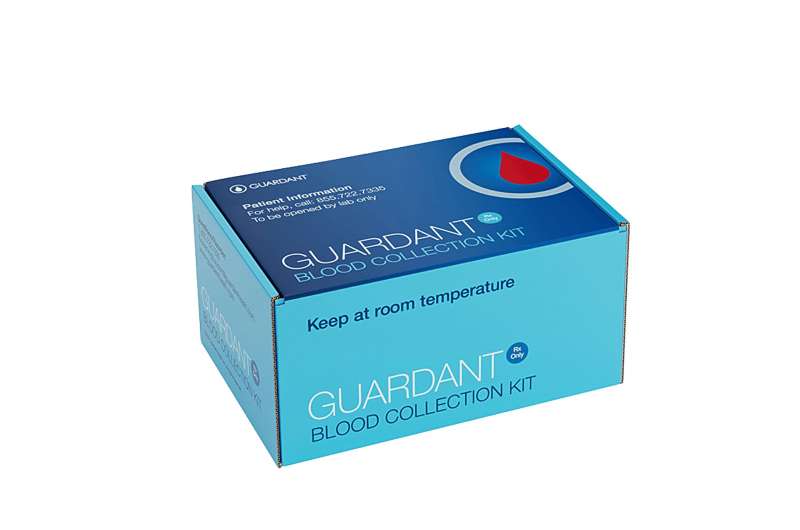This article has been reviewed according to Science X's editorial process and policies. Editors have highlighted the following attributes while ensuring the content's credibility:
fact-checked
reputable news agency
proofread
FDA approves another blood test for colon cancer screening

The U.S. Food and Drug Administration on Monday approved a new blood test that can spot colon cancer.
In late May, an FDA advisory panel had voted 7–2 that the benefits outweigh the risks when using the Guardant Health's Shield test for colon cancer.
Monday's approval makes Shield only the second blood test approved for the illness: Epigenomics' Epi proColon was approved in 2016.
According to a news release from Guardant, however, Shield "is the first blood test to be approved by the FDA as a primary screening option for colorectal cancer, meaning health care providers can offer Shield in a manner similar to all other noninvasive methods recommended in screening guidelines."
The company added that "Shield is also the first blood test for [colorectal cancer] screening that meets the requirements for Medicare coverage."
Experts hope the advent of blood tests for colon cancer will raise screening rates for the disease, which remains the number two cancer killer in the United States.
According to the American Cancer Society, close to 107,000 cases of colon cancer will be diagnosed this year, and more than 46,000 people will die from the illness.
"The persistent gap in colorectal cancer screening rates shows that the existing screening options do not appeal to millions of people," Dr. Daniel Chung, a gastroenterologist at Massachusetts General Hospital, said in the Guardant release.
"The FDA's approval of the Shield blood test marks a tremendous leap forward, offering a compelling new solution to close this gap. This decision will help make screening tests more broadly accessible and propel blood-based testing and CRC screening into a new era. With increased screening rates and early cancer detection, many more lives can be saved."
Currently, colonoscopy is the gold standard test for colon cancer, but adherence to it is low because it is invasive and preparation for the test is daunting. Other tests include fecal tests such as Exact Sciences' Cologuard, but blood-based tests are considered more convenient.
In their deliberations, panelists raised concerns that Guardant's test was not as accurate as colonoscopy, especially as Shield detected only 13% of pre-cancerous tumors called advanced adenomas, NBC News reported. This issue was also raised by FDA staff in briefing documents.
Guardant's application for approval was based on a study that showed the test detected 83% of colon cancers, according to the FDA documents.
Guardant stressed that Shield "is intended as a screening test for individuals at average risk for the disease, age 45 or older, and is not intended for individuals at high risk for colorectal cancer."
The company said that, as a first step in screening, any positive result from the blood test, "raises concern for the presence of colorectal cancer or advanced adenoma and the patient should be referred for colonoscopy evaluation."
Shield "is better than nothing, but I don't want to downplay the issue that this test is going to miss a lot of cancers," panel member Charity Morgan, a professor in the department of biostatistics at University of Alabama, said during the panel meeting, NBC News reported at the time the panel voted for approval.
More information: The American Cancer Society has more on colon cancer.
© 2024 HealthDay. All rights reserved.




















